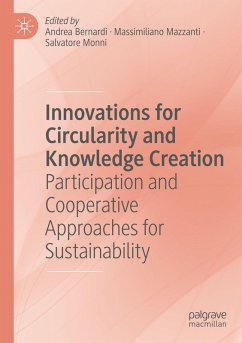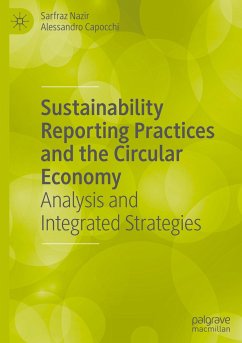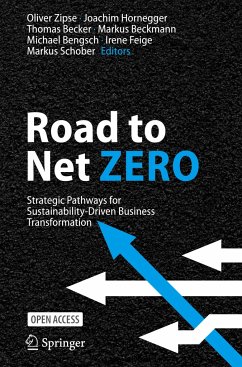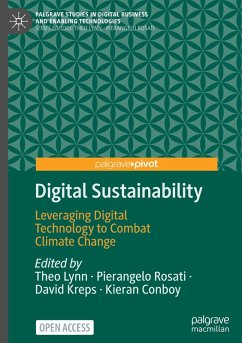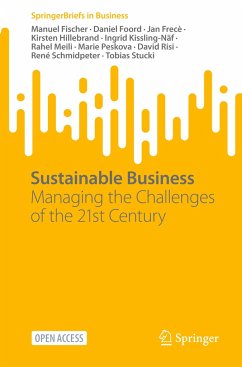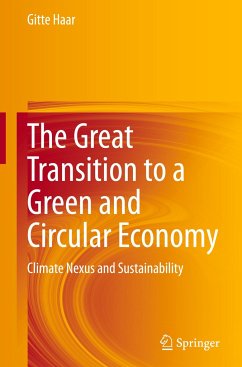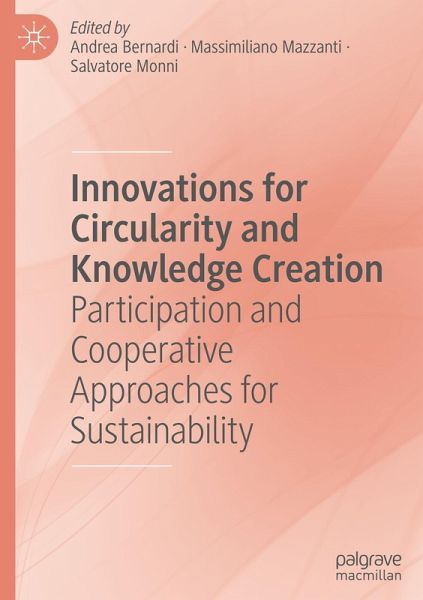
Innovations for Circularity and Knowledge Creation
Participation and Cooperative Approaches for Sustainability
Herausgegeben: Bernardi, Andrea; Mazzanti, Massimiliano; Monni, Salvatore

PAYBACK Punkte
65 °P sammeln!
Co-operatives are increasingly being recognized as important contributors to inclusive, sustainable and fair development. However, the co-operative movement faces a multitude of challenges, including the lack of access to credit. This book presents existing cases and new examples of the intersection between the co-operative economy and sustainability challenges.Chapters explore innovative circular and low carbon sustainable economy cases and practical examples of the role of co-operative organizations within the European Union. It asks how policy factors influence sustainability innovations, e...
Co-operatives are increasingly being recognized as important contributors to inclusive, sustainable and fair development. However, the co-operative movement faces a multitude of challenges, including the lack of access to credit. This book presents existing cases and new examples of the intersection between the co-operative economy and sustainability challenges.
Chapters explore innovative circular and low carbon sustainable economy cases and practical examples of the role of co-operative organizations within the European Union. It asks how policy factors influence sustainability innovations, explores the role of workers' involvement in firm strategies and analyses the management style of cooperative firms in facing sustainability challenges. This book will be an essential resource for scholars and students of sustainability and the circular economy, innovation management, HRM and labour studies.
Chapters explore innovative circular and low carbon sustainable economy cases and practical examples of the role of co-operative organizations within the European Union. It asks how policy factors influence sustainability innovations, explores the role of workers' involvement in firm strategies and analyses the management style of cooperative firms in facing sustainability challenges. This book will be an essential resource for scholars and students of sustainability and the circular economy, innovation management, HRM and labour studies.



